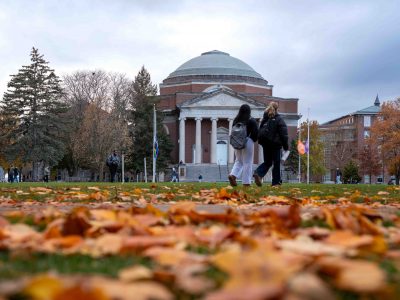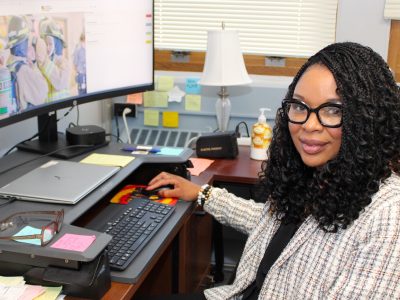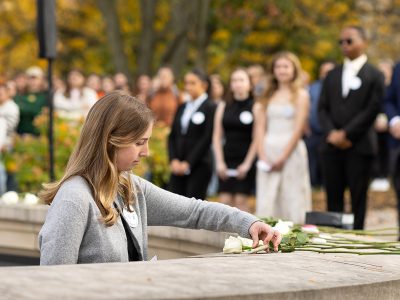NSF Grant Advances Planning for Community College Engineering Pathway Program
The development of a new pathway program for community college students interested in engineering recently got a boost from a $100,000 National Science Foundation (NSF) planning grant.
The pathway program, “Roadmap Into Syracuse Engineering Undergraduate Programs and the Profession” (“RISEUP2”), aims to attract academically talented, low-income students from Central New York who historically have been excluded from those types of careers, including adult learners, first-generation students, traditionally under-represented minorities, veterans and students with high levels of financial need.
The grant also allows a multi-school project team to plan for and prepare to submit a later Track 3 S-STEM fund proposal for NSF funding that would provide student scholarships for science, technology, engineering and math (STEM) studies.
That step recognizes the need to educate, grow and retain a diverse and highly skilled STEM workforce in the Central New York region, a realization catalyzed by Micron Technology’s 2022 announcement of plans to build a $100 billion megafab semiconductor manufacturing facility in the region and New York State’s subsequent decision to invest $500 million in community and workforce development, says Julie Hasenwinkel, Laura J. and L. Douglas Meredith Professor of Teaching Excellence and chair of biomedical and chemical engineering in the College of Engineering and Computer Science (ECS), who is the project’s principal investigator.
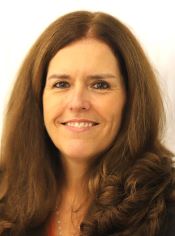
“This is a really exciting opportunity for ECS to envision different ways to bring students into our undergraduate program. With the growing regional and national need for engineers, we want to attract students who don’t just come to us straight out of high school. This planning grant gives us the opportunity to dig deeply into assuring that we would give those students the best opportunity to s쳮d if they come here,” Hasenwinkel says.
The NSF award funds information-gathering, program research and partnership-building efforts that the multi-school, multi-organizational project team is undertaking through spring 2025, when the Track 3 S-STEM NSF grant proposal will likely be submitted, Hasenwinkel says. That type of grant would directly fund scholarships for engineering students and underwrite the support services to help assure the academic, social and career success of RISEUP2 program participants, Hasenwinkel says.
Goals for the planning phase include:
- Strengthening current connections between the University and Onondaga and Mohawk Valley Community Colleges and expanding partnerships with additional regional community colleges (potentially Jefferson, Cayuga, Tompkins Cortland and Broome Community Colleges)
- Formalizing transfer agreements with the regional community colleges to provide direct admission to Syracuse University ECS programs
- Conducting a comprehensive needs assessment across all partner institutions to determine what kinds of programming best support low-income engineering students at their two-year college, during their transition to a four-year university and throughout their time at Syracuse
- Developing formal partnerships with Micron and other area STEM employers and strengthening alliances with the Manufacturers Association of Central New York and the Technology Alliance of Central New York to solidify internship and employment opportunities
- Conducting research to better understand how a scholarship-based cohort model focused on workforce development can improve outcomes for low-income community college engineering transfer students
Project team members envision a program that offers a clear pathway to a bachelor’s degree within a “360-degree” system of student support. Beginning in the earliest years of college, it would offer ongoing guidance in financial aid, academic counseling, student success and educational and social programming at both the community college and University campuses. It would also offer living-learning residency opportunities, summer internships, professional development training and ultimately, job placement assistance.
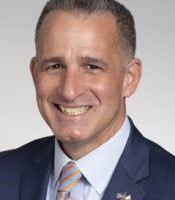
Working with Hasenwinkel are co-principal investigators Tracey Clancy, professor of mathematics at Onondaga Community College; David Pérez II, associate professor of higher education in the School of Education; Jake Mihevc, dean of the School of STEM Transfer and associate professor at Mohawk Valley Community College; and Michael Frasciello, dean of the College of Professional Studies at Syracuse. Other ECS faculty and staff in admissions, recruitment and enrollment, student success and inclusive excellence are also part of the process, as are their counterparts at the community colleges.
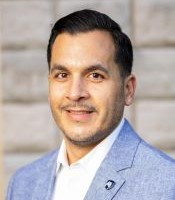
Though the team fully plans to proceed with a Track 3 S-STEM proposal, this year’s planning activity and research will be useful in and of itself, creating knowledge and new information regarding the group of students the proposal aims to help, Hasenwinkel says.
“We’ll also be learning as we go, and we’ll be able to contribute to the educational literature on the most effective practices for supporting this population of students.”
